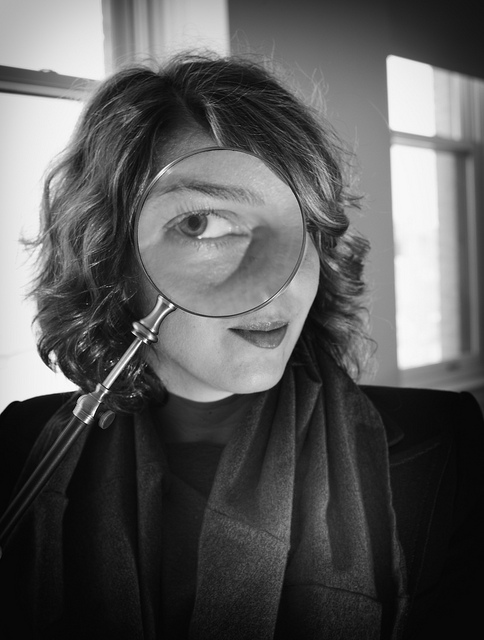[setmeta name=”title”]Ask a Counsellor about their Practical Experience[/setmeta][setmeta name=”description”]What actual practical experience can you ask a counsellor about when trying to decide if they are legitimate, experienced & qualified.[/setmeta][setfeatureimage img=’files/2013/01/6091567693_a5d0880fe01.jpg’]
On This Page...
A Counsellor’s Practical Experience.
Has the counsellor got a lot of experience, a little experience; are their qualifications based on the theory of counselling only (no supervised practice) or is the counsellor still in training? Does the counsellor practice a recognised approach to therapy? Newly qualified counsellors may be suitable and safe, but they may lack in practical experience.
Tip: Ask the counsellor about their ‘therapy model’ and then go and ready up about it on the Internet.
Dean Richardson’s counselling practice has been supervised in a minimum of 90 minutes of a month since 1999.
Counsellor’s Special Interest & Experience.
Does the counsellor have any special interests or special experience in working in particular therapeutic areas?
Whilst Dean Richardson works with all individuals and couples as a generally practising therapist, he is also an LGBT specialist and mixed-sexuality couple relationship counsellor.
The Counsellor’s Theoretical Approach.
There are different forms of counselling and psychotherapy – and whilst it’s the relationship between therapist and client that is shown to matter, some approaches might suit you better than others.
See Wikipedia – http://en.wikipedia.org/wiki/List_of_psychotherapies for information on therapy models.
Dean Richardson’s core theoretical approach is psychodynamic & cognitive behavioural for individual’s counselling, systemic/psychodynamic for couples relationship counselling and a Foulkesian/psychoanalytic/facilitative approach to counselling groups.
Who does the Counsellor work with professionally?
Does the counsellor state what types of person they can work with (eg adults, couples, young people, children, elderly etc).
Tip: Check that the counsellor’s qualifications cover the type of people the counsellor sees. For example – if their diploma is ‘… for individual counselling’ how does the counsellor justfy meeting with you and your partner for couple counselling?
Dean Richardson works with adults from the ages of 18 upwards, works with individuals, couples and small groups (<= 6 people) and does not work with children.
Statement of how the Counsellor works in therapy.
Does the counsellor give you an idea of how they work therapeutically?
Tip: Check that the counsellor’s qualifications match how they work (eg if the diploma is in psychodynamic counselling, how does the counsellor justify offering you Gestalt therapy?)
Dean Richardson works therapeutically using a primarily psychodynamic core framework with a Cognitive Behavioural Approach (CBA) where appropriate for individuals, with a systemic framework for couple counselling, and a group analytic/facilitative model framework for group therapy (read more)


2 replies on “How to Find & Vet a Counsellor”
It is unbelievable that this industry is not yet regulated and I actually wonder what the government are thinking of? It most certainly is not the health and well being of the public nor is it to protect and value those of us with a full portfolio of qualifications, ongoing professional development and clinical supervision.
Unfortunately, this leaves the general public vulnerable, especially those with mental health issues and enduring complex needs. At best they are being financially abused; but at worse could experience inappropriate practice, behaviours and interventions, which have potential to harm.
Interestingly, practitioners with little or no qualifications will protect their lack of academic backgrounds and qualifications by giving the impression that this is not essential, whilst caring and having insightful intentions is more valid.
Most will not be aware of the need to have a DBS, CPD, Mandatory training including life saving, H+S, data protection/FOI, ethics, insurance and supervision.
I believe this issue should be addressed without delay to protect the public and the profession.
A chap from Pakistan was asking on a Social Network group (for professional counsellors) if anyone could recommend a 3-month training course to become a counsellor.
He had “dabbled” in counselling people a bit, and so thought he would be a good counsellor because he “listened well”.
His qualifications were in a scientific field (beyond degree-level).
It was put to him that he was a danger to his clients. That counselling was not “done” to people, like the approach a scientist would employ. That he didn’t know… what he didn’t know… about why he would be dangerous to people’s mental health. That he aught to be looking at several *years* (not months) of training and practice before qualification.
His reply was: “LOL, but I become bored after a few weeks”.
In the UK this person would be allowed to practice in without any legal restrictions for claiming to be a counsellor (maybe there are laws that could be manoeuvred to fit the damage he would cause in retrospect).
I’m not a fan of regulation – but if this is what we who have worked to become qualified, to become experienced, who have obtained professional membership accreditation, who continue with monthly supervision and CPD, practice in an ethical manner, would have to go through in regulation to prevent Mr Pakistan from setting up shop and causing harm to others… then I’d go through regulation.